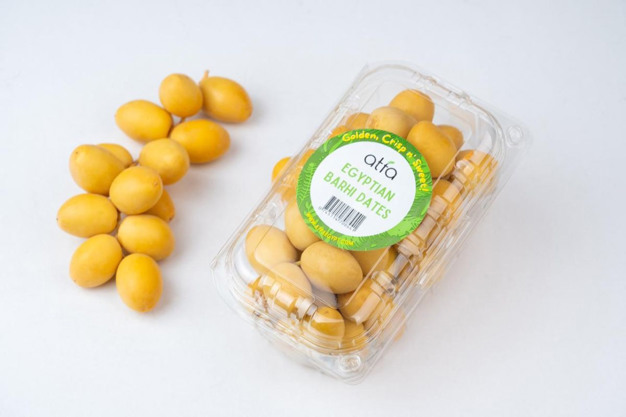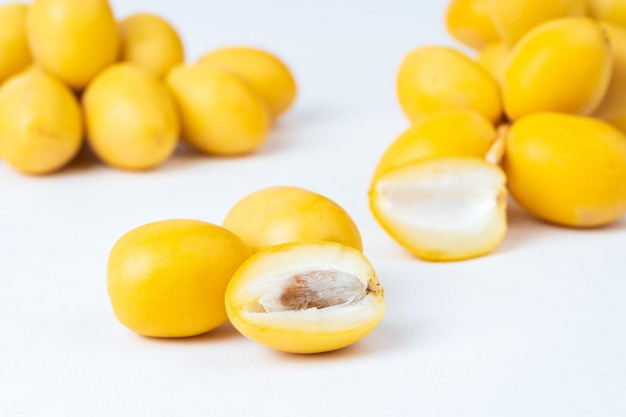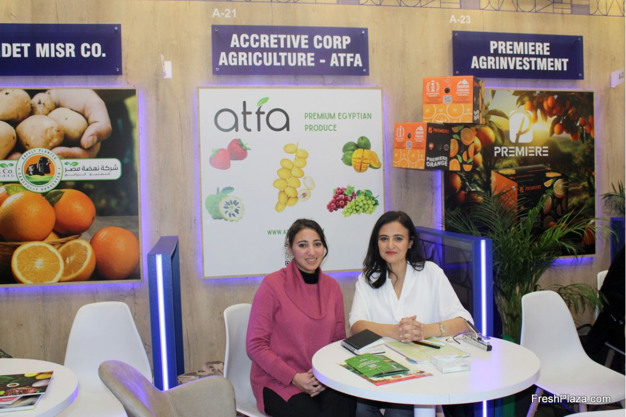The Egyptian Barhi date season ended a few weeks ago, and the results are "very satisfactory" for Nihal Abdel Ghaffar, one of the pioneers of the Barhi cultivation and exports in Egypt.

Before the launch of exports, production showed an improvement on the previous season. According to Nihal, "volumes were up by almost 20% for most growers. This increase is due to optimal climatic conditions rather than increases in surface areas. It should be noted that the majority of Barhi plantations in Egypt are young, less than ten years old, and we'll have to wait to see the expansion of surface areas translated into volumes. This increase will be exponential, given the new areas planted. On the other hand, this season, we had a warmer climate during palm pollination period which is perfect for Barhi dates."

New to Egypt, but also to the markets, the Barhi variety is becoming increasingly popular with traders, according to Nihal: "This season, we've seen overwhelming demand. In 2022, my customers didn't know what Barhi dates were, but now they order them again and again. When I attend shows such as Fruit Attraction and Fruit Logistica, samples are never enough and traders really appreciate this particular fruit."
"The special thing about Barhi dates is that it's a date, but unlike other dates, it's also a fresh fruit, which is atypical. It's a nice fruit with an exquisite taste. Consumers are always keen to try something new, and it's a niche product that's now growing in popularity," Nihal adds.

The variety was able to reach new markets on a bigger scale this season, according to Nihal. She explains, "In terms of demand, our traditional markets are the Far East, but it is almost saturated. Thanks to extensive marketing efforts and successful commercial trials, we have exported a lot more volumes this season to Europe and Canada. These markets are used to semi-dry dates from Morocco and Tunisia, where Barhi dates are not grown. The introduction of Barhi dates has been a success."
Barhi, on the other hand, is well known and produced in many parts of the world, Nihal adds, "It can be found in Saudi Arabia, Jordan, Lebanon, Oman, Peru, Chile, Namibia, California, and other parts of the world. Large volumes are grown in Jordan, which is our main competitor. We do, however, have a decisive commercial advantage, which is seasonality. We export at a time of year when there isn't much high quality Barhi on the market. What's more, most of the other origins had less supply because of climate change."

Despite rising demand, prices for Egyptian Barhi have fallen this season, according to the grower. She puts the drop at around 15% compared with last season and explains it by the increase in volumes in Egypt and in the number of exporters, which heats competition between them. Reduced prices, coupled with higher air freight costs, have squeezed growers' margins. Nihal adds that "prices are subject to the dynamics between supply and demand, so it's difficult to establish a trend for the coming years. As we have growing demand and supply that don't necessarily match."
The Barhi variety is gaining in appeal with Egyptian growers, along with another leading variety, Medjool. "However, there is no competition between the two varieties," says Nihal. "Where the climate is good for medjool, it's bad for barhi, and vice versa. There are very few areas where these two leading varieties compete. So there will be an increase in acreage for both and a shared appeal for growers and exporters. It should also be remembered that the two varieties are not entirely substitutable. While medjool has a long shelf life, up to 18 months, Barhi is a fresh and perishable fruit."

Nihal concludes: "The Barhi export season is therefore very short. With the emergence of strong international demand, we at Accretive Corp Agriculture are conducting trials to freeze the fruits and extend the season. We are helped by a long lead time and a better understanding and experience of this variety. While the majority of Egyptian plantations are less than ten years old, we have been producing this variety for over 30 years."
For more information:
Nihal Abdel Ghaffar
Accretive Co for agriculture (Atfa)
Tel: +201001914191
Email: [email protected]
www.atfaegypt.com
